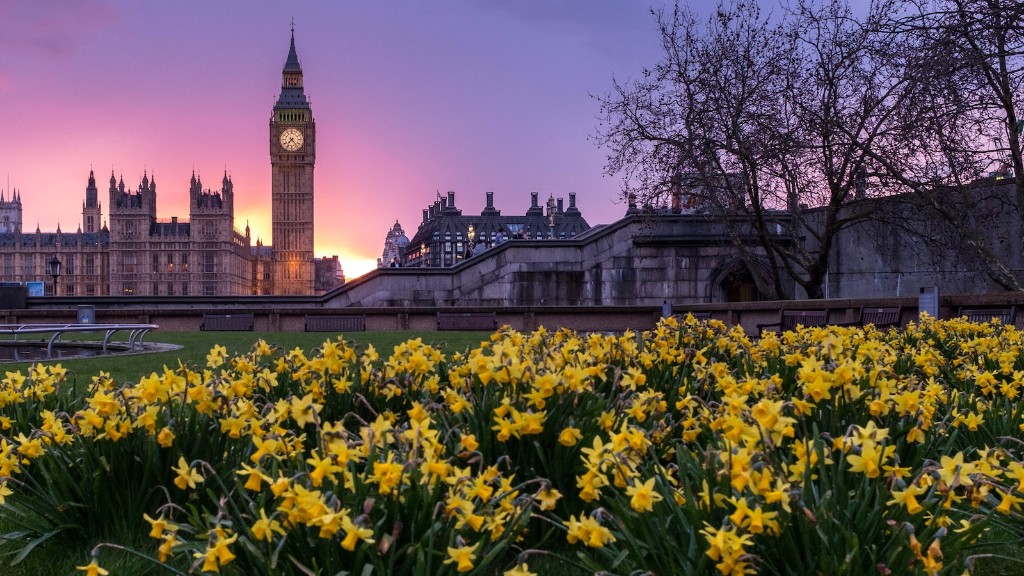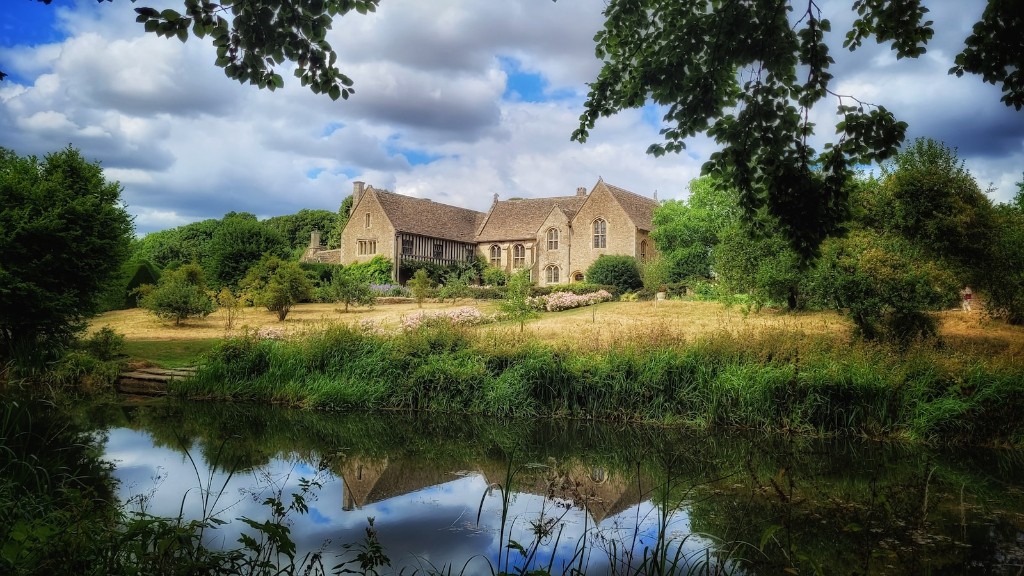A Colonist Who Sided With Great Britain
During the period leading up to the American Revolution, people across the Atlantic shared much in common. It was a time of political unrest, of patriotic ideals, of rallying cries for freedom. But the one thing that divided the two had nothing to do with borders, but instead a passion to stand on either side of the great divide. During the tumultuous time, many people were forced to make a decision: to side with Great Britain or the thirteen colonies. This article will explore the story of one of those people who chose to side with the crown: a colonist who sided with Great Britain.
It was strange for any colonist to side with Great Britain, even as the war effort threatened to split the nation. The colonies’ basic rights and liberties, such as free and fair trade, were being threatened by the British government, which sought to undermine the colonies’ independence. Even with these incentives, some colonists chose to remain loyal to Great Britain, and perhaps as strange, some of them did so for their belief in law and order.
According to Melvyn Bragg, author of the book “American Colonies: A History of Loyalists”, the notion of lawful obedience was the essential platform of the British government. “Monarchy and hereditary power were, after all, the foundations of British government,” he writes. Supporters of the crown viewed the American Revolution as a call to anarchy. “The American Patriots appeared to be a band of rebels and defectors, determined to bring down the power and authority of the British Empire,” he adds.
The cause of the loyalists was a general sense of patriotism, even while the British authorities grew increasingly oppressive. In a letter written to the governors of the Thirteen Colonies, a supporter of the crown wrote, “Let the plain truth be told, that the true Loyalists not only look with indignity and horror to a rebellious opposition of laws of state, but also may each unfeignedly declare, that he justly esteems his allegiance to his King, the only sure and legal bond of union between this continent and England.”
The hardships that loyalists suffered were immense. In response to their loyalty, the colonial patriots took steps to punish the loyalists, including ostracizing them, seizing their properties, and removing their rights. They were even prevented from emigrating to other colonies or countries, which meant that many loyalists had little choice but to remain in the colonies and simply hope for the best.
In an article published in the Harvard Journal of Law and Public Policy, prominent loyalist Daniel Leonard wrote, “The persecution of loyalists during and after the revolution has been documented to a degree. Despite the violations of legal protections they suffered, the supporters of the crown chose to remain loyal to the king, out of a genuine sense of patriotism and a commitment to the notion of lawful rule.
The Loyalists’ Impact on Post-Revolutionary America
The colonists who sided with Great Britain did not yet know the profound impact they would have on the emerging nation. Despite being punished for their loyalty to the crown, the period of unification in post-revolutionary America resulted in renewed respect for the loyalists. The influence of these colonial patriots can be seen in the nation’s constitutional framework and the states’ early legal systems.
In an article written by political scientist William B. Loveland, he argues that the “majority of constitutional provisions that served to bind the thirteen colonies into a single nation between 1776 and 1787” were actually drawn up by the loyalists. These included matters related to interstate and international relations, as well as regulations governing the taxing power and the powers of the federal government.
Not only did the loyalists assist in creating a unified nation, but also in the early legal systems that formed the basis of the common law system used in the United States today. In many states, such as Massachusetts and Pennsylvania, the laws implemented after the Revolution were based on those that had been established by the British government and subsequently adopted by the loyalists.
The legacy of the loyalists has endured into the present, proving that even among bitter ideological divides there must still be room for compromise. It was this spirit of understanding and reconciliation that helped to bring together disparate communities and create a nation that would last for centuries.
The Loyalists’ Influence on Modern Society
The influence of the loyalists extends far beyond the colonial era. Much of the spirit of liberty that formed the basis of modern society can be traced back to the actions of the loyalists. They brought to light the importance of respecting someone’s individual opinions, as well as the need for compromise and bridge-building across ideological divides.
These lessons can be seen in the work of a variety of contemporary thought leaders, including the civil rights movement, and even in today’s corporate world. For instance, many of the cutting-edge initiatives launched by companies such as Google, Apple, and Microsoft have been driven by the principles of collaboration and mutual understanding.
The legacy of the loyalists is also evident in the way that nations around the world today approach resolving global tensions. Rather than resorting to armed conflict or economic sanctions, many countries now view negotiation and compromise as more desirable means of achieving peaceful outcomes.
The actions of the loyalists nearly two centuries ago were not just acts of patriotism, but expressions of a noble, timeless spirit of unity. That spirit has since been adopted by people around the world and continues to shape modern society in unprecedented ways.
Loyalists’ Experiences in Canada
These colonists who sided with Great Britain had an inestimable influence on Canada’s nascent society as well. After being refused entry in most colonies in America, a group of loyalists migrated to what is now Nova Scotia, driven by their passion for loyalty to the crown. “These people had left their homes in the colonies,” writes historian Ryder McLaughlin. “Some had lost their lands, some were threatened by Patriot mobs, some wanted to remain loyal to the British Crown and still live in America.”
In Canada, these loyalists initiated an age of reform. In an effort to make the country more representative, the loyalists’ influence led to the formation of a responsible government in Nova Scotia. The reforms even spread to Newfoundland, where a responsible government founded on the principle of responsible government soon replaced the British colonial system.
The influence of the loyalists did not stop there. In the early to mid-1800s, some of them re-emigrated from Canada to the United States, where they served in public office and even contributed to the nation’s growing economy. In fact, as historian John C. Coombs highlighted in his book, The Loyalists of America and their Times, many of these migrants were the founders of a significant number of banks and universities in the US.
The Impact on History and Education
While the loyalists’ influence has not gone wholly unacknowledged, it is one that has oft been overlooked by historians. In her book, The Loyalists: American Loyalists in the American Revolution, historian Sylvie Dérive-Lazardi wrote that “while the Americans may not acknowledge them, the Brits do, and the loyalists have become part of the history of Great Britain.”
This lack of recognition of the key role that loyalists played in the founding of the United States exists even today. In many academic institutions, the loyalists’ contributions are rarely discussed in detail, and there is an overwhelming American-centric narrative of the Revolution that leaves out many of the other perspectives.
Fortunately, this appears to be changing for the better. A number of organizations have dedicated themselves to the promotion and education of the loyalists’ legacy. One of the most prominent is the United Empire Loyalists’ Association of Canada, which works to “promote in all suitable ways an understanding and appreciation of the history and contributions of the United Empire Loyalists and their descendants.”
A better understanding of the loyalists’ role in modern history and culture can help us better appreciate their contributions and ensure that the sacrifices they made are never forgotten.
The Legacy of Loyalism
The loyalty the colonists expressed towards the crown while standing against the shackles of tyranny was quite admirable. It was a sentiment shared by people on both sides of the War. As the nation today fights for its rights and defends its sovereignty, the stories of the loyalists offer us a lesson in courage, patriotic fervor, and an unwavering commitment to the cause.
Today, those loyalists who chose to remain faithful to the crown and fight for the colonies have been immortalized. A number of them have been honored with the Loyalist Medal, posthumously presented by the crown, or have statues erected in their memory.
The legacy of these colonists who sided with Great Britain is one that will continue to stand the test of time. Their courage and commitment is still worth remembering, for their spirit of unity and their undying loyalty is one that should be remembered and celebrated today.
Contemporary Loyalists
Today, the term “loyalist” is still used to refer to those who have a strong sense of patriotism and loyalty to the crown. Recent events, from the Brexit referendum to the Special Relationship debate, have made it





